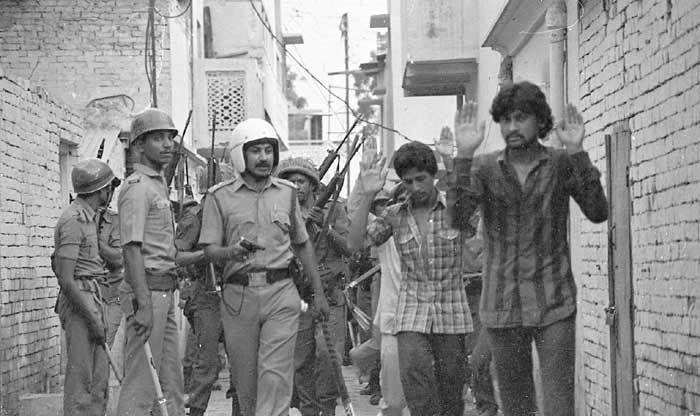After 31 years, of a long battle, 38 Muslim men who were victims of custodial killings, have received justice in the massacre that occurred during the communal riots in Meerut.
The Delhi high court convicted 16 former members of the UP Provincial Armed Constabulary (PAC) for killing 38 innocent and unarmed Muslim men in the Hashimpura area of Meerut city in 1987. The Delhi high court concluded that 38 people were killed after there were earlier reports that stated that 42 people were killed. However, after carefully perusing all documents on record, The court sentenced the accused to life imprisonment and directed them to surrender on or before November 22.
The people responsible for that were sentenced to 10 years imprisonment with a fine of Rs 10,000 for abduction and kidnapping. The court also awarded them five years imprisonment for attempt to murder and three years for disappearing the evidence of the offence.
A bench of Justices S Muralidhar and Vinod Goel held that the deaths were a “targeted killing of persons belonging to one minority community”.
The court stated “We are conscious that for the families of those killed, this is perhaps too little, too late. They have had to wait for 31 years for justice. The monetary compensation they have received cannot make up for the lives lost. This case points to the systemic failure that results, not infrequently, in a miscarriage of justice.”
The Hashimpura massacre which took place on or around 22 May 1987 near Meerut in Uttar Pradesh state, during the 1987 Meerut communal riots with a death toll of 350. It is alleged that 19 personnel of the Provincial Armed Constabulary led by platoon commander Surender Pal Singh rounded up 42 youths from the Hashimpura locality of the city, took them to the outskirts of the city, shot them in cold blood and dumped their bodies in a nearby irrigation canal. A few days later, the dead bodies were found floating in the canal and a case of murder was registered.
Eventually, 19 men were accused of having performed the act. In May 2000, 16 of the 19 accused surrendered and were later released on bail, the other three accused having died in the intervening period. In 2002, the Supreme Court of India ordered that the case be transferred from the Ghaziabad district court to a Sessions Court at the Tis Hazari complex in Delhi.
Senior advocate Rebecca John for the National Human Rights Commission, which filed an appeal after the lower court acquitted the accused in 2015 said, “What I respect is the dignity of the victims that they had shown. There was no “tamasha” despite the inordinate delay. While accepting the ways of the system, sometimes they were frustrated but that did not lower their faith in the system.”

